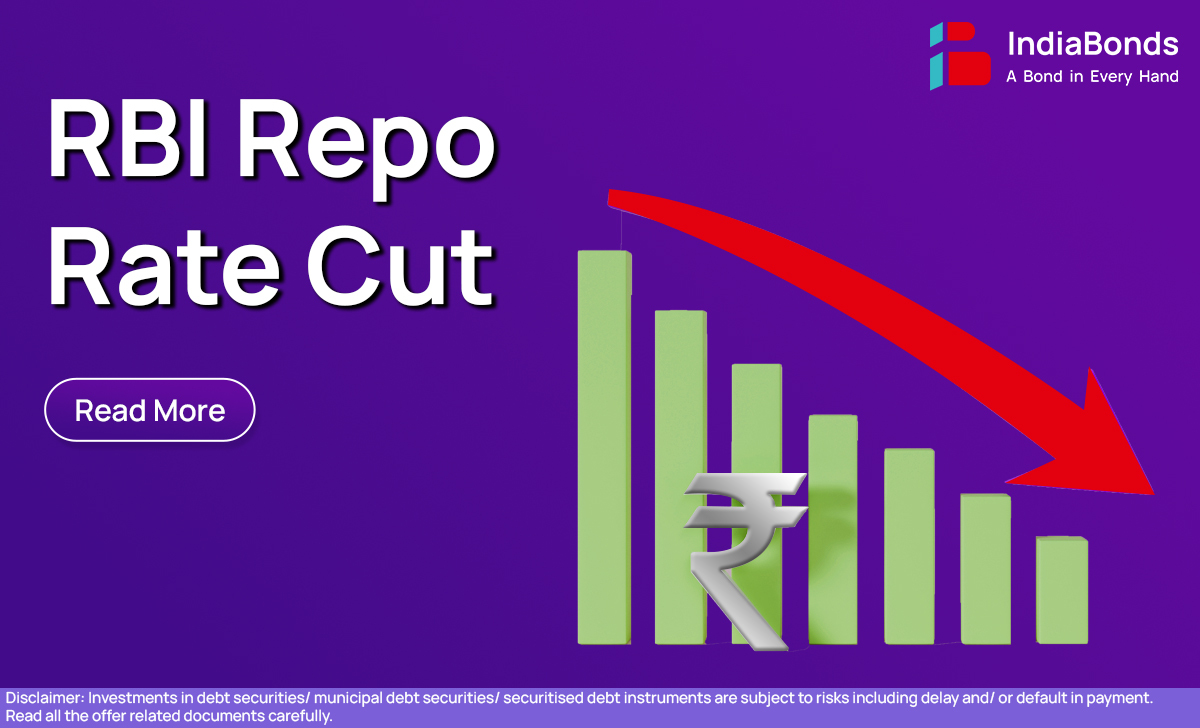RBI’s Repo Rate Cut: What It Means for You?

Once in a while, the Reserve Bank of India (RBI) announces a change that quietly touches almost every part of our financial lives. One such change? The RBI repo rate. It might not seem like a big deal at first, but it plays a role in things like your EMIs, how much your FD earns or even your future savings goals.
What Is Repo Rate?
Think of the repo rate as the rate at which banks borrow money from the RBI when they’re short on funds. But it’s not just about banks. That rate influences how much interest you pay on loans or what you earn on your deposits.
So if someone asks what is repo rate, you can say it’s the base rate that influences interest rates around us, like those on loans and fixed deposits.
What Happens When Repo Rate Is Cut?
When the RBI brings down the repo rate, banks can borrow money at a cheaper cost. Many banks then reduce the interest rates they charge people, whether it’s for home loans, business loan or car loan.
The goal here? To boost borrowing, encourage spending, and give the economy a little push — especially when growth is slow. That’s why a recent repo rate cut usually grabs headlines. For you, it could mean smaller EMIs or better credit terms.
Impact on Fixed Deposits
Let’s talk savings. Lower RBI repo rate usually leads to lower FD interest rates. Why? Because if banks are borrowing cheaply from the RBI, they don’t need to attract deposits by offering you high returns.
If you rely on fixed deposits for income, this can be frustrating. A steady rate that you once enjoyed might not be available anymore. That’s why many people start looking for alternatives whenever there’s a cut in the present RBI repo rate.
Impact on Bonds
This is where things get interesting. A repo rate cut often gives a boost to bonds — especially those already in the market. If you’re holding a bond that pays a fixed interest rate, and newer bonds are now offering less, yours suddenly looks more attractive.
So yes, bond prices may rise when the RBI monetary policy repo rate is cut. And that’s good news for existing bondholders. On the flip side, new investors might have to settle for slightly lower returns — unless they explore high-yield or long-dated options.
What About the Stock and Bond Markets?
The markets usually love a good repo rate cut — especially the stock market. Lower borrowing costs are good for businesses, so sectors like banking, real estate, and consumer goods tend to benefit. That’s why a recent repo rate change can make the market swing up.
Bond markets, too, get a lift — but timing matters. If you’re already invested, you may see gains. If you’re entering now, choosing the right mix becomes more important.
A balanced investor often watches both stock and bond trends when the RBI monetary policy repo rate is revised.
FAQs
Q: What is the present RBI repo rate?
A. RBI recently cut repo rate by 0.5% bringing it to 5.5% from 6%. It is set by the central bank in its bi-monthly policy meet. It’s updated based on inflation, economic growth, and global cues.
Q: Will my home loan EMI reduce if the repo rate is cut?
If you have a floating rate loan, then yes — your EMI is likely to reduce after a rate cut. The timing of the cut being passed on, though, depends on your bank.
Q: Is it still wise to invest in FDs?
After a rate cut, FDs may not offer the same returns. If you’re seeking stable income, diversifying into bonds could be worth exploring.
Q: Do repo rate changes affect mutual funds?
Yes, especially debt mutual funds. They tend to do well when interest rates drop, as bond prices rise in such an environment.
Q: Should I change my investment plan after a rate cut?
Not necessarily. But it’s a good time to reassess. If your portfolio leans heavily on fixed deposits, exploring other instruments like bonds might help you stay ahead.
































